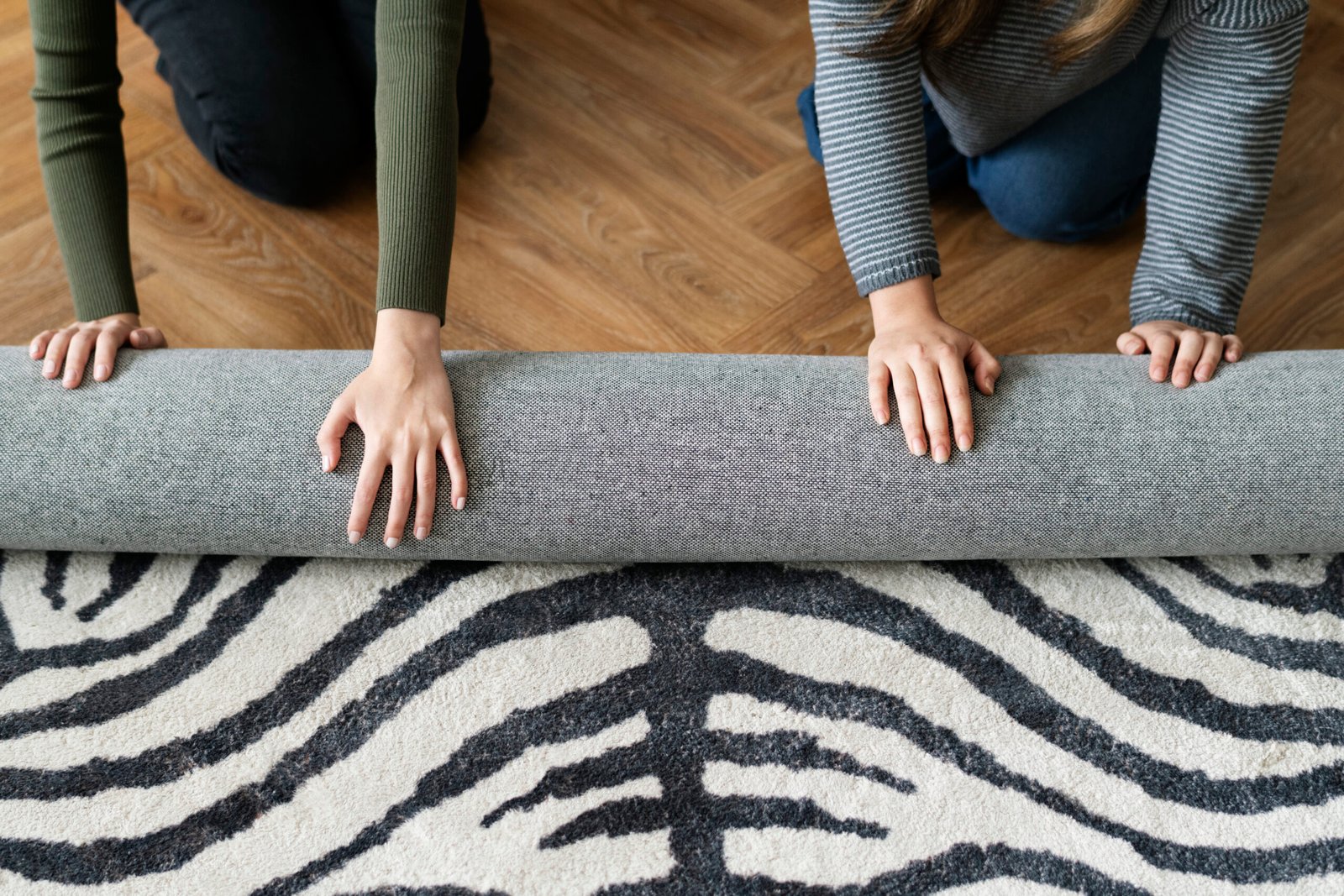Currently Empty: $0.00
Choosing a rug? Great. Now ask yourself: what kind of floor will it go on?
The type of flooring beneath your rug affects how it looks, feels, performs — and even how long it lasts. From slick tile to plush carpet, each surface has different needs.
In this guide, we break down the best rugs for different floor types and what to consider for comfort, safety, and style.
—
Rugs for Hardwood Floors
Hardwood looks beautiful — but it’s also prone to scratching. The right rug can enhance your space and protect your flooring.
Best rug types:
- Flatweave or low-pile wool rugs for a clean, natural look
- Natural fiber rugs (jute, sisal) for added texture
- Polypropylene rugs for durability and color variety
Things to avoid:
- Latex-backed rugs that can stick or discolor wood
- Rugs without pads (always use a non-slip felt + rubber rug pad)
Extra tip: Go for warm tones like rust, terracotta, or blue-gray to complement natural wood.
—
Rugs for Tile Floors
Tile is smooth, durable, and cool underfoot — but it can also be slippery and echoey. Rugs add warmth and safety.
Best rug types:
- Wool or recycled PET for warmth and cushioning
- High-pile rugs in living areas to reduce noise
- Indoor/outdoor rugs in kitchens and bathrooms (moisture-resistant)
Important: Use a rug pad with strong grip to prevent slipping — especially on glossy tiles.
Bonus idea: Round rugs can soften tile-heavy kitchens and bathrooms.
—
Rugs for Carpeted Floors
Yes, you can absolutely layer rugs over carpet. In fact, it adds style and structure.
Best rug types:
- Flatweave rugs or kilims (avoid thick rugs on thick carpet)
- Bold or patterned styles to contrast plain carpet
- Textured jute or cotton rugs to add interest
Key tip: Use a carpet-to-carpet rug pad to prevent shifting or bunching.
Styling tip: Choose a rug that defines the space — like under a coffee table or at the foot of the bed — to break up a large carpeted room.
—
Rugs for Laminate Floors
Laminate mimics wood or tile but needs protection from moisture and scratches.
Best rug types:
- Polypropylene or PET for easy cleaning and low risk of dye transfer
- Wool blends for warmth and comfort in bedrooms or living rooms
- Lightweight washable rugs for kitchens or kids’ rooms
Pad advice: Use a breathable felt pad to avoid trapping moisture.
Avoid: Rug backings that stick or stain — always test for colorfastness.
—
Rugs for Vinyl or LVP (Luxury Vinyl Plank)
Vinyl is durable and water-resistant — but certain rug backings can damage its finish.
Best rug types:
- Flatweave cotton or PET rugs for high-traffic areas
- Jute rugs in dry spaces
- Washable rugs in family zones
Important: Use non-staining felt pads (avoid rubber or latex unless verified safe for vinyl).
—
Rug Pad Tips by Floor Type
| Floor Type | Rug Pad Type Recommended |
|---|---|
| Hardwood | Felt + rubber combo pad (non-staining) |
| Tile | Full rubber pad for grip |
| Carpet | Carpet-to-carpet pad |
| Laminate | Natural felt pad (no plastic backings) |
| Vinyl | PVC-free, non-slip felt pad (safe for LVP) |
Reminder: A quality rug pad extends rug life, improves comfort, and prevents slips — regardless of flooring.
—
Final Thoughts
No matter how beautiful your rug is, its performance depends on what’s underneath. By choosing rugs that suit your specific flooring, you’ll enjoy better comfort, safety, and long-term durability.
At Rugs1.com, we offer a wide range of rugs and rug pads designed to work perfectly with hardwood, tile, carpet, and more — so your space stays stylish and smart from the ground up.
—
Shop by Flooring Type at Rugs1.com:
- Rugs for Hardwood Floors
- Rugs for Tile Kitchens & Bathrooms
- Flatweave Rugs for Carpeted Rooms
- Moisture-Safe Rugs for Laminate & Vinyl
- Rug Pads for Every Floor
